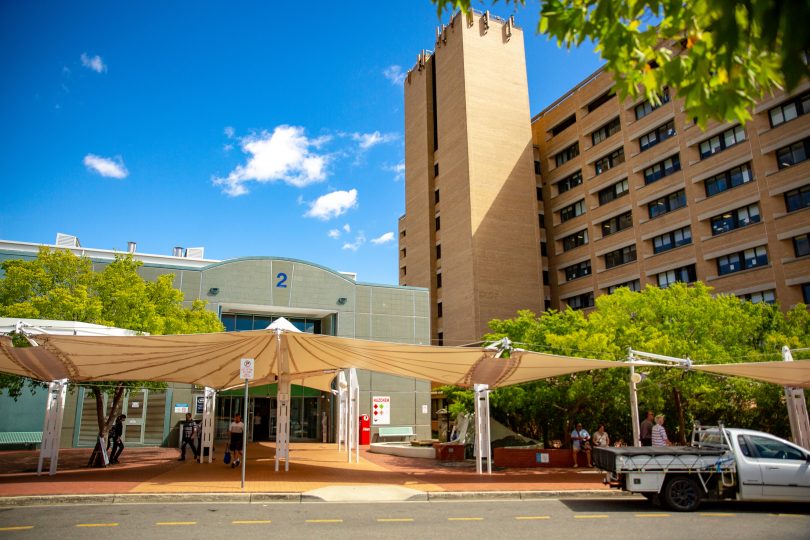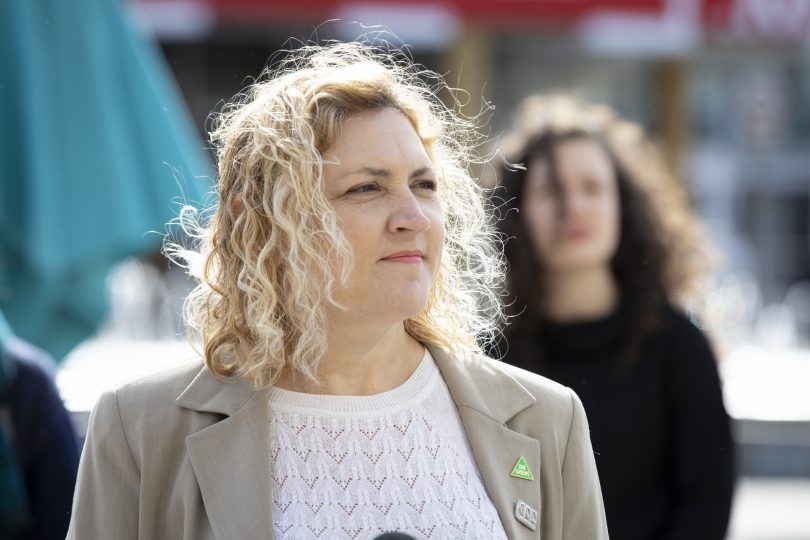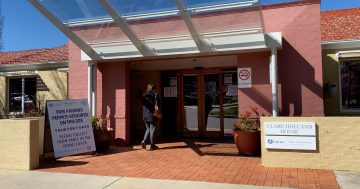
Canberra Hospital. Photo: File.
A damning report has slammed ACT Health’s decision to remove a homeless, mentally ill patient from hospital care several times.
The 33-year-old, who has a diagnosis of schizophrenia, was discharged from psychiatric care on three occasions in February and April 2020 and went on to light seven fires around Canberra.
In an ACT Supreme Court judgement, forensic psychiatrist Dr Richard Furst blasted ACT Health over its handling of the case.
He said discharging the patient three times while he was in a psychotic state, without stable accommodation and without a feasible discharge plan, was “reprehensible and negligent in the extreme”.
“Furthermore, it is only through good luck, rather than good management, that neither [the man] nor any member of the community were seriously injured or killed as a consequence of those grossly deficient episodes of ‘care’ and poorly thought-out discharge plans,” Dr Furst said.
He said the Canberra Hospital’s “failure” to adequately treat and detain the patient – which it should have done due to its duty of care and the provisions in the Mental Health Act – was the “indirect but substantive cause” of the fires the man started.
The agreed statement of facts showed, over the course of an hour, the man lit seven fires in Woden early in the morning of 12 May 2020, starting with a fire at the Woden Hotel which damaged the building’s interior as well as its outside walls before it was extinguished.
He then set six public rubbish bins on fire at Woden’s Westfield Shopping Centre, including near the Australian Red Cross store, McDonald’s restaurant and Hoyts Cinema. He was arrested four hours later.
When the matter came before the ACT Supreme Court, Justice Chrissa Loukas-Karlsson accepted his pleas of not guilty by reason of mental impairment to a charge of arson as well as six counts of damaging property and ordered him to submit to the jurisdiction of the ACT Civil and Administrative Tribunal.
Justice Loukas-Karlsson said the man’s schizophrenia meant he “could not control the conduct when carrying out the offences”.
Dr Furst called for an independent review of systems at the Canberra Hospital and community mental health services focusing on the discharge planning process for chronically psychotic and dangerous patients who are mentally ill, homeless and pose an unacceptable risk when discharged.

Minister for Mental Health Emma Davidson. Photo: Michelle Kroll.
In response, Minister for Mental Health Emma Davidson said the ACT Government was constantly reviewing and improving processes and procedures but did not directly answer questions about what the government would do to ensure the situation was never repeated.
“Recently we’ve implemented a number of initiatives including the refurbishment of a 10-bed sub-acute extended care unit on the site of Brian Hennessy House,” she said.
“The unit, which opened this week, is for transitional and rehabilitation accommodation for people with enduring mental illness.
“Another 10-bed unit will be developed over this term of government.”
Ms Davidson also said the Adult Community Mental Health Team was operating a pilot program to improve how to meet the needs of people experiencing mental illness and homelessness in the city catchment area.
“The pilot aims to provide people with an assertive response from a designated sub-team to meet their short-term needs and then step them down to standard clinical management for ongoing and more longitudinal care,” she said.
If you or anyone you know is struggling and needs help, contact Lifeline on 13 11 14 at any time or visit www.lifeline.org.au.
If you are concerned about someone’s immediate safety or wellbeing, call 000.





















